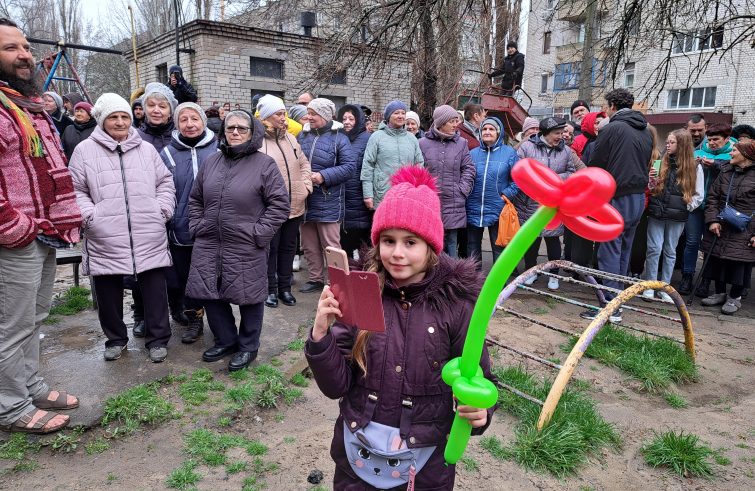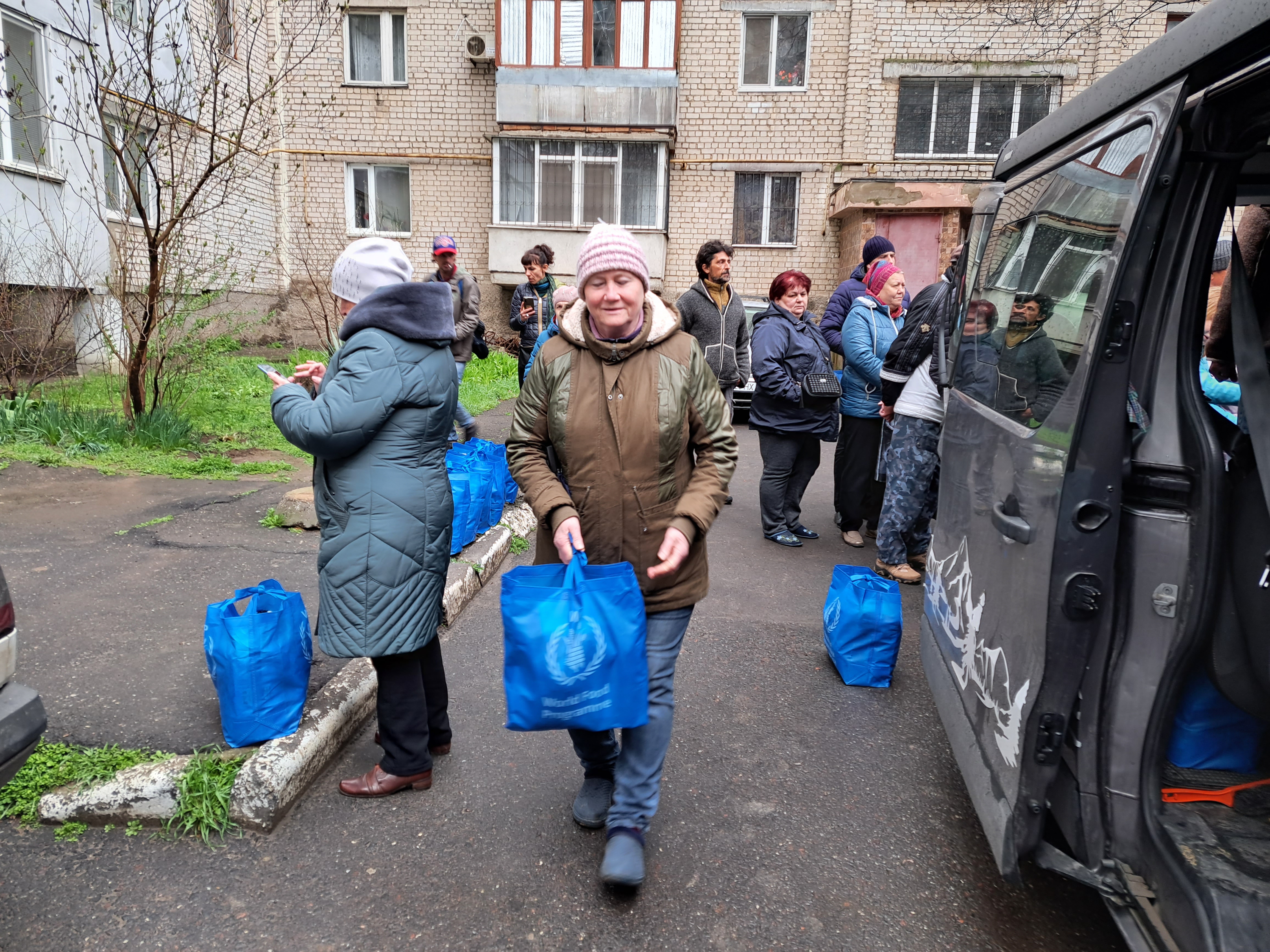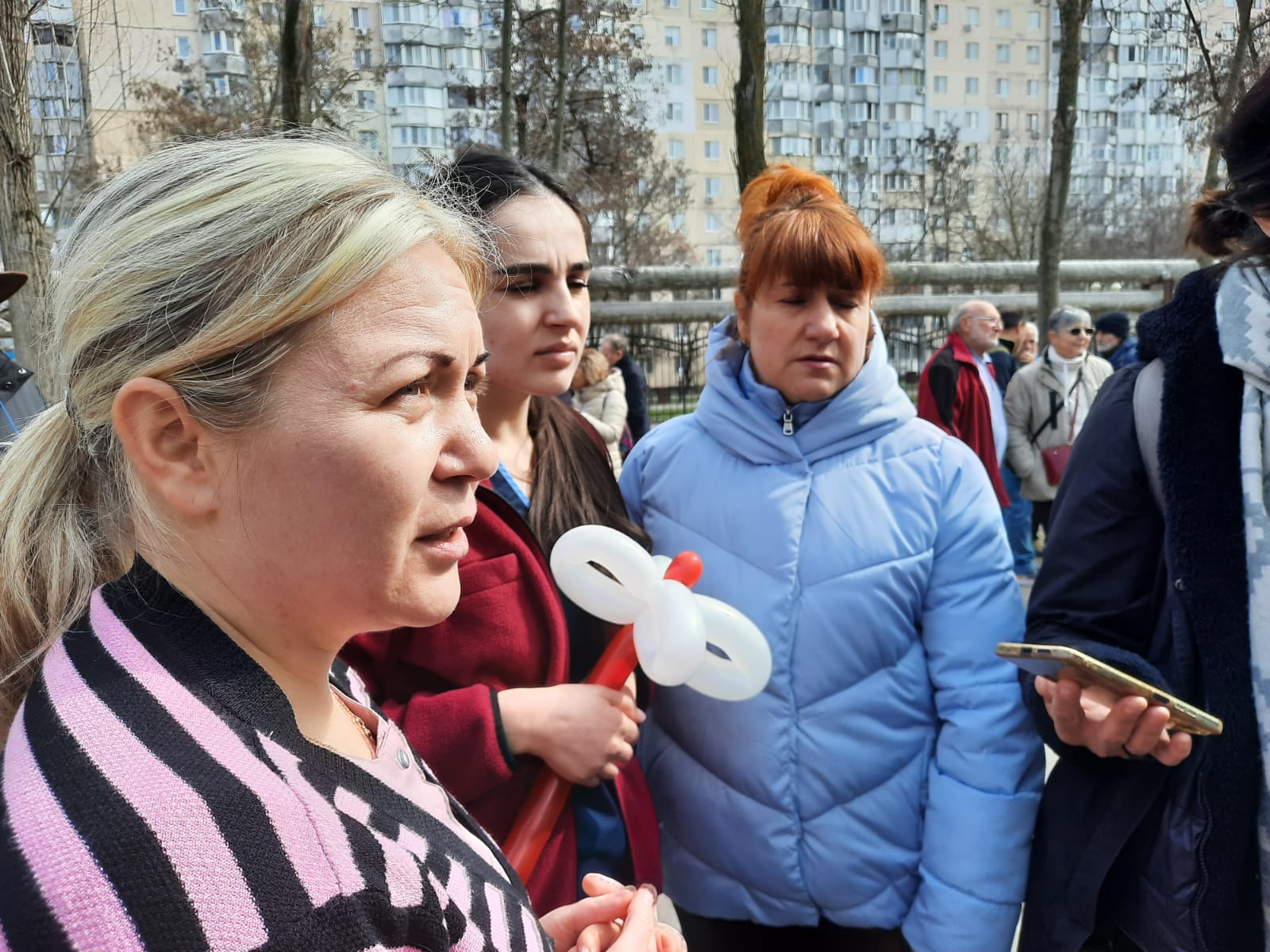
 The women of Ukraine have a name, a face, a story. They are called Irjna, Olga, Tanya, Masha. Although their ages and experiences differ, “they are all courageous women who are fighting, who are not losing hope, who are carrying on despite everything. They are often alone because their husbands are at war defending their country, but they hold out. That is why I would like to talk to you about some specific women whom I have had the good fortune to meet personally.” Donatella Rafanelli is an Italian woman who has been living in Ukraine since 2019. She is a professional Italian teacher and a member of the Focolare Movement. She lives halfway between Kyiv and Mukachevo. She personally experienced the “great exodus” from the capital when the city was taken by Russian forces on 24 February 2022. However, she decided not to abandon these people. She wanted to share their ordeal, their suffering, their strength and their resistance. To mark International Women’s Day on 8 March, SIR contacted her by telephone to gain her insight into the “Ukrainian women”. Her story starts with a plethora of names, stories and situations.
The women of Ukraine have a name, a face, a story. They are called Irjna, Olga, Tanya, Masha. Although their ages and experiences differ, “they are all courageous women who are fighting, who are not losing hope, who are carrying on despite everything. They are often alone because their husbands are at war defending their country, but they hold out. That is why I would like to talk to you about some specific women whom I have had the good fortune to meet personally.” Donatella Rafanelli is an Italian woman who has been living in Ukraine since 2019. She is a professional Italian teacher and a member of the Focolare Movement. She lives halfway between Kyiv and Mukachevo. She personally experienced the “great exodus” from the capital when the city was taken by Russian forces on 24 February 2022. However, she decided not to abandon these people. She wanted to share their ordeal, their suffering, their strength and their resistance. To mark International Women’s Day on 8 March, SIR contacted her by telephone to gain her insight into the “Ukrainian women”. Her story starts with a plethora of names, stories and situations.
“I am thinking of Irina”, says Donatella. “Like many women here in Ukraine, her husband was sent to the front. He is fighting in the Donbas. They have no children and Irjna is alone. She is a deeply religious woman. She and her husband are in contact with each other often. He speaks to her of very harsh facts that are difficult to recount, but he also tells her about the solidarity of the soldiers. The courage, the hope, the unshakeable strength to carry on. She is at his side in every way, first of all through prayer, but also through the sending of material aid.
Her husband says he does not identify with any religious faith, but “he too has started to pray.” On the front line, she says, there are no people who are far from God. There are moments when they all gather to pray”.
Then there is Marina, a young girl now studying at the University of Lviv. She is from a town that is located 70 kilometres from Kyiv. She was 17 at the start of the full-scale Russian invasion and her mother immediately went to the front as a volunteer nurse, leaving her alone with her grandparents. She now works as a paramedic for the Donbass Armed Forces, the only woman among the soldiers. “Marina spent one month at our home. We were impressed by her special way of describing her mother and the soldiers. We must support them in every way,” she says, “because they are fighting for our freedom and independence.” Olga is a 38-year-old Ukrainian businesswoman currently working in Switzerland. She was overseeing a project to host a group of orphaned children, aged between three months and two years, in Switzerland. The group was accompanied by a woman who acted as an intermediary. They travelled for four days. They travelled by bus, car and train. They never slept. When they arrived in Switzerland, they were exhausted. But the next day she turned up at the embassy looking absolutely fine. She looked like a different person. Well dressed, well groomed.
“Femininity is a typical characteristic of Ukrainian women,” says Donatella. “It’s in their DNA, it’s part of their culture. Beauty and femininity are often equated with weakness, but not here. On the contrary, it is a sign of zest for life, a sign that life goes on even when there is war. Behind so much beauty there are women who never give up.”
 Ukrainians have always had to fight. In the past they fought for their wages, for insurance, for health care, for their children’s access to a good education. Now, they say, they are fighting “for the freedom of our country”. And they do so with great dignity and courage, even willing to sacrifice their lives. “One woman told me that she knew nothing about her cousin, who had been held hostage for five months. Both of Anja’s parents are serving as soldiers at the front. Her mother is still there, but her father is a prisoner in Russia. They received a video showing that he was still alive. But it’s a video from months ago. And she goes on with her life, studying with this immense pain inside.”
Ukrainians have always had to fight. In the past they fought for their wages, for insurance, for health care, for their children’s access to a good education. Now, they say, they are fighting “for the freedom of our country”. And they do so with great dignity and courage, even willing to sacrifice their lives. “One woman told me that she knew nothing about her cousin, who had been held hostage for five months. Both of Anja’s parents are serving as soldiers at the front. Her mother is still there, but her father is a prisoner in Russia. They received a video showing that he was still alive. But it’s a video from months ago. And she goes on with her life, studying with this immense pain inside.”
Tanya fled an occupied town with her two daughters, aged 10 and 12. She hid them in the car, behind her suitcases. While they were waiting at the checkpoint, a person in front of them got out, was shot and died instantly. She was terrified, but all she could think about at the time was how to press the accelerator in case she was hit, to get her girls to safety.
Finally, there is Masha’s story. She was married to a Russian man who joined the Russian army after the war broke out. But when he saw what was happening in Bucha and then in Mariupol, he could not bear it and died of a heart attack. With great pain, Masha shared his story at a moment of encounter and sharing. “In the face of all this suffering, I feel so insignificant that no words make sense,” Donatella admits. “I listen and there is nothing more I can do.”
 “I believe that women have a key role to play,” says Donatella, not least because here in Ukraine the population is predominantly female. “Most of the men are either at the front or in hiding, so you see very little of them. The women are the ones who take care of everything. They look after their children, see to their education, prepare the future of the nation. Ukrainian women have rolled up their sleeves. They have always done so. But even more so now, with the war. For when peace returns to the country, it will also be a time of reconstruction. The men will be back, but they will be in a state of deep trauma. Women will be the ones to embrace them, to heal their physical and emotional wounds. But they will do so with a different kind of love, because these two years have made them stronger and braver.”
“I believe that women have a key role to play,” says Donatella, not least because here in Ukraine the population is predominantly female. “Most of the men are either at the front or in hiding, so you see very little of them. The women are the ones who take care of everything. They look after their children, see to their education, prepare the future of the nation. Ukrainian women have rolled up their sleeves. They have always done so. But even more so now, with the war. For when peace returns to the country, it will also be a time of reconstruction. The men will be back, but they will be in a state of deep trauma. Women will be the ones to embrace them, to heal their physical and emotional wounds. But they will do so with a different kind of love, because these two years have made them stronger and braver.”









